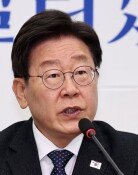N. Korea waivers expenses for returning U.S. troop remains
N. Korea waivers expenses for returning U.S. troop remains
Posted July. 05, 2018 07:44,
Updated July. 05, 2018 07:44
As North Korea will likely repatriate the remains of U.S. troops killed during the 1950-1953 Korean War in synch with U.S. Secretary of State Mike Pompeo’s planned visit to Pyongyang on Friday, Pyongyang has informed Washington that it would not charge the repatriation expenses as it did in the past.
According to multiple sources on North Korea, the North did not demand that Washington pay for the repatriation while negotiating with the United States over returning the remains of some 200 U.S. troops killed in action. The North searched for the remains of killed U.S. troops from 1990 through 2007 and has so far returned those of 443 soldiers. During the process, Washington has paid about 50,000 U.S. dollars per body.
“If the North returns 200 bodies this time, the United States will have to pay over 10 million dollars,” one source said. “As far as I know, there will be no payment this time because of concerns that it could violate the U.N. sanctions that prohibits large cash payments to the North.” However, North Korea plans to charge expenses for possible future repatriations, as it costs hefty amounts of money for the North mobilizing its troops for the excavation job.
North Korean leader Kim Jong Un, who inspected a border area with China ahead of Pompeo’s visit, encouraged economic development by sending gifts to factories he lauded for having shown good performances. Rodong Sinmun, the official paper of the Central Committee of the ruling Workers’ Party of Korea, reported that Kim sent a bus to the residents on Sindo Island which he visited recently and “cultural goods” to workers of the Sinuiju Cosmetics Factory. However, the paper did not mention the Sinuiju Textile Mill and Sinuiju Chemical Fibre Mill which he “strictly rebuked” for poor operations. “It is likely that managers of the factories where issues were raised will be punished rather than receiving gifts,” said Jeong Seong-jang, a North Korea leadership expert at the Sejong Institute in Seoul.
Na-Ri Shin journari@donga.com







